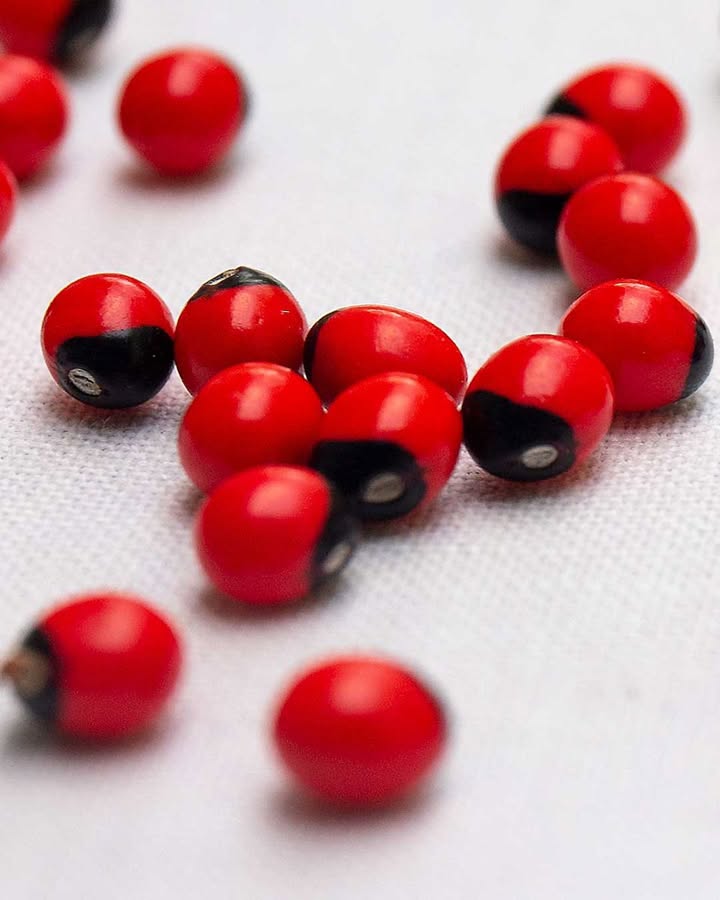I Found Strange Seeds in My Spaghetti—Here’s What They Might Be

It was just another regular evening. I had tossed together a quick meal using canned spaghetti sauce when something unusual caught my eye. As I stirred the sauce into the pasta, I noticed small, hard seeds with a glossy red and black appearance—definitely not what I expected in a store-bought sauce.
What were these mysterious intruders in my dinner?
A Closer Look at the Suspicious Seeds
Curious and slightly alarmed, I took a closer look. The seeds were small and shiny, with a vivid red color and a black patch on one end. They looked out of place and certainly weren’t listed among the ingredients on the label. Determined to find out what they were, I began researching.
The Shocking Truth: Could They Be Rosary Peas?
After comparing several images and descriptions online, the seeds appeared to closely resemble rosary peas—scientifically known as Abrus precatorius. These seeds are known for their striking appearance, but they come with a serious warning: they contain abrin, a highly toxic compound. Even a tiny amount of this substance can be fatal if ingested.
How Could This Happen?
Finding what could be toxic seeds in a canned spaghetti sauce is alarming, to say the least. It raises serious concerns about the safety measures in place during food manufacturing. One possibility is accidental contamination during ingredient processing—perhaps at the source or during packaging. Either way, this is a clear reminder of how critical strict quality control is in the food industry.
The Hidden Dangers of Rosary Peas
Rosary peas might look decorative, but they’re anything but harmless. If chewed or ingested, they can cause symptoms such as vomiting, abdominal pain, and nausea. In severe cases, the toxin abrin can lead to liver damage, organ failure, and even death. Thankfully, I didn’t eat them—but the risk was unsettling.
What To Do If You Find Foreign Objects in Food
If you ever find something unusual or foreign in your food, stop eating immediately. Keep the item, the packaging, and any evidence intact. Take photos and notes about what you found and where you bought it. Contacting the product manufacturer is also a good step—they need to know, and you could help prevent harm to others.
Report It: Protect Others and Raise Awareness
It’s also essential to report such incidents to food safety authorities, like the FDA or your local health department. Provide them with details such as batch numbers, expiration dates, and purchase location. Your report could lead to a product recall or spark an investigation that prevents others from being exposed to similar risks.
Staying Safe in Your Own Kitchen
Although rare, incidents like this show the importance of being alert. Always check your food before consuming it—especially canned or processed goods. Stay up to date on food safety news and recalls. And when something seems off, trust your instincts and investigate.
Final Thoughts: Stay Informed, Stay Safe
Finding suspicious seeds in a spaghetti sauce was unnerving, but it served as a powerful reminder that we can never take food safety for granted. Being proactive, informed, and cautious is key to protecting yourself and your family. And by speaking up when something seems wrong, we help make the entire food system safer for everyone.